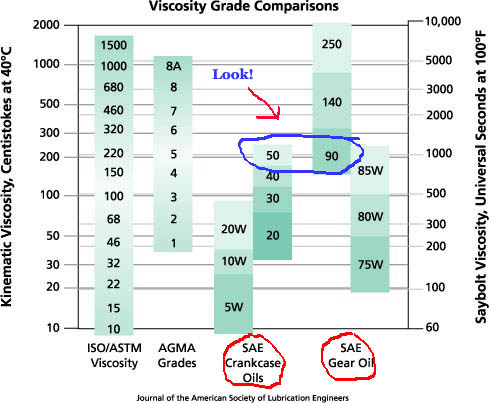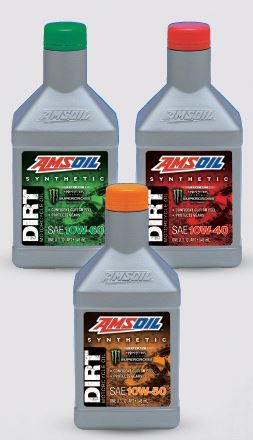We get this question a lot and it’s a good one! – How can a 20W-50 be used in my transmission requiring a 75W-90 (80W-90, 75W-110) The answer is simple if you have a chart to reference by. The viscosity for engine oils and gear oils are not part of the same scale. In fact […]
You are browsing archives for
Category: Uncategorized
New AMSOIL Motorcycle Primary and Transm...
Another new product for the Sioux Falls store based on years of requests. AMSOIL introduces both a Synthetic transmission fluid and a primary chaincase fluid. While AMSOIL still recommends the original suggestion (MCV 20W-50 in all three) these satisfy those who want to use a specific fluid for the application. Comparing viscosities the new transmission […]
New 20W-40 for Victory & Indian Motorcyc
New AMSOIL 20W-40 Synthetic V-Twin Motorcycle Oil (MVI) is formulated to provide premium protection for Victory and model-year 2013 and newer Indian motorcycles. It is the only full-synthetic 20W-40 motorcycle oil on the market, presenting riders a premium alternative to Indian- and Victory-branded semi-synthetic oils. Indian and Victory motorcycles incorporate a shared sump, and AMSOIL […]
The Value of Consistent Clutch Feel – Di
It’s well-known that racing is one of the ways AMSOIL motor oils are tested, proven and fine-tuned to become the exceptional products we stand behind. We don’t invest in racers simply to put the AMSOIL brand in front of fans; AMSOIL racers become technical partners. The development of new AMSOIL Synthetic Dirt Bike Oil, introduced […]



